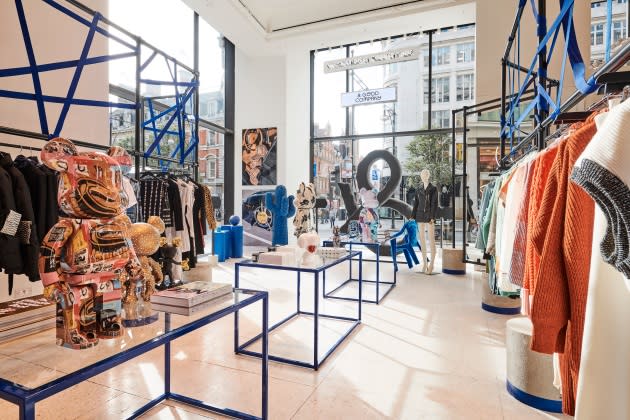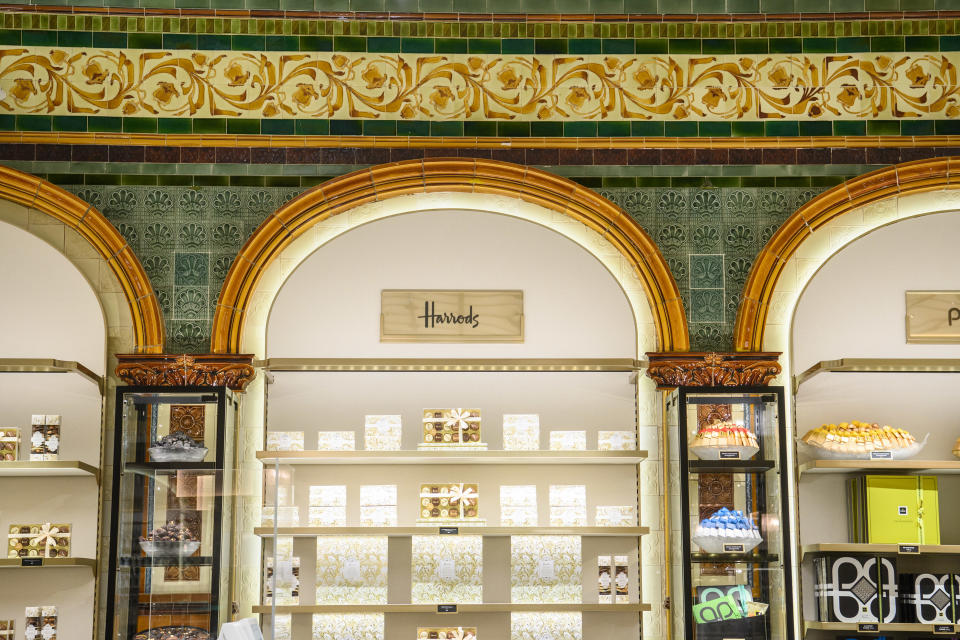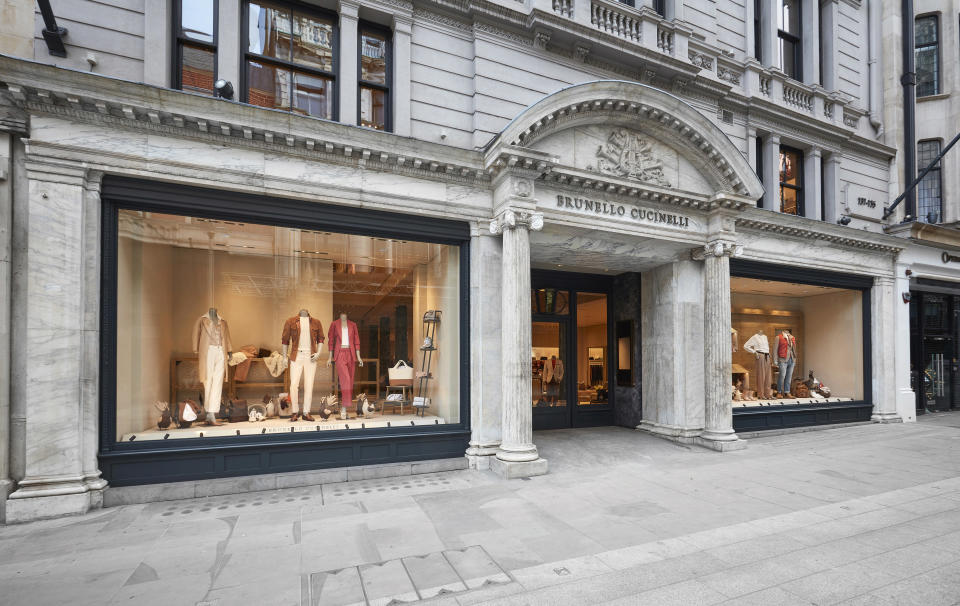British Brands, Retailers ‘Disappointed’ by Tax-free Shopping Reversal

LONDON — Less than a month after the U.K. government revealed plans to restore tax-free shopping for international visitors, it has junked the pledge as part of a widespread package of measures aimed at calming the financial markets and restoring stability to the pound, and the country’s finances.
Industry groups and luxury retailers had hailed the return of tax-free shopping, arguing it would bolster tourism post-COVID-19 and help U.K. luxury brands and retailers compete with their European counterparts.
More from WWD
Now, under the newly appointed Chancellor of the Exchequer Jeremy Hunt, that euphoria has evaporated as the country seeks to generate as much tax income as it can in order to restore confidence in brand Britain.
Hunt axed the tax-free scheme in his debut speech as chancellor on Monday. In the five-minute speech, he tore up Prime Minister Liz Truss’ new low-tax plan for the country in a bid to restore stability to the markets — and to Truss’ tenure.
The new measures he unveiled are set to save the government 32 billion pounds annually.
“I remain extremely confident about the U.K.’s long-term economic prospects as we deliver on our mission to go for growth. Growth requires confidence and stability and the United Kingdom will always pay its way. This government will therefore take whatever tough decisions are necessary to do so,” said Hunt, who is set to lay out more budget details later this month.
During the speech, the pound rose by around 1 percent against the dollar, trading at $1.13. It continued to climb throughout the day, rising to $1.14 in the late afternoon.
The FTSE 100 index of top-performing stocks rose 1 percent to 6,926.41 in late afternoon trading.
Helen Brocklebank, chief executive officer of Walpole, the lobby representing British luxury brands across a variety of industries, said she was “disappointed that the government has decided not to proceed with its policy to return tax-free shopping,” a policy which she contended would have quickly delivered growth.
She argued that the scheme could have delivered predicted direct retail sales of “at least 1.2 billion pounds and wider associated spend across tourism and hospitality.” She argued that the positive impact on jobs and prosperity would have been felt in every part of the U.K.

Brocklebank said waiving taxes on purchases in the U.K. by international visitors “would have been a significant boost to U.K. manufacturing, which forms part of the wider ecosystem of the sector and supports jobs across the country.”
Walpole, she added, will work closely with the new chancellor, “first and foremost to try to secure a review of the true benefits this scheme might bring.”
Paul Barnes, CEO of the Association of International Retail, said the decision will come as a “hammer blow” to U.K. tourism and to the British high street. He described the move as “short-sighted” and said it risks putting a brake on the return of international visitors “who are vital drivers of economic growth throughout the U.K.”
Barnes added that tax-free shopping was “a key motivator for international tourists when choosing where to visit.”
Over the past two years, the British retail sector had pleaded with the government to bring back tax-free shopping since it was ditched in January 2021 as part of a government fundraising drive post-Brexit, and in the thick of the pandemic.
Last month, when Truss revealed she was restoring the perk, retailers said they were looking forward to the introduction of “a modern, digital, VAT-free shopping scheme.”
At the time, Dee Corsi, interim CEO at New West End Company, said the reintroduction of the scheme was “a great victory for London’s international centers.”
In a note published shortly after Hunt’s address on Monday, Jefferies said the decision will continue to put London “at a distinct disadvantage” versus Paris and Milan. The bank cited a report by Walpole and Bain saying that wealthy visitors have a propensity to spend four times that of mainstream tourists, and that reinstating the tax-free perks would be “an obvious driver for the luxury sector in the U.K.”
The bank also saw the dark humor in the reversal of the tax-free decision after less than one month. Jefferies noted that, given the current political uncertainty in the U.K., it’s difficult to say whether “this reversal of the reversal could be reversed, be it next week or next year.”
The restoration of tax-free shopping had been part of Truss’ new controversial “mini-budget” of unfunded tax cuts for individuals and breaks for the ultra-wealthy and big business that was announced late last month.
The financial markets immediately gave her plan a thumbs-down, sending the pound plummeting against the dollar and the cost of Britain’s debt soaring. There are increasing calls nationwide and in the British parliament for Truss to step down.
She was elected earlier this year in a vote by roughly 140,000 Conservative party members and has been forced to repeal almost all of the high-growth, low-tax pledges that she made during her campaign.
As part of Truss’ bid to keep her job, and calm the markets, she fired her Chancellor of the Exchequer, and longtime colleague and friend, Kwasi Kwarteng, who only spent a few weeks in office, and appointed Hunt, who is seen by many to be an experienced politician and businessman.
Hunt previously has served as foreign minister and health minister in past Conservative governments.



